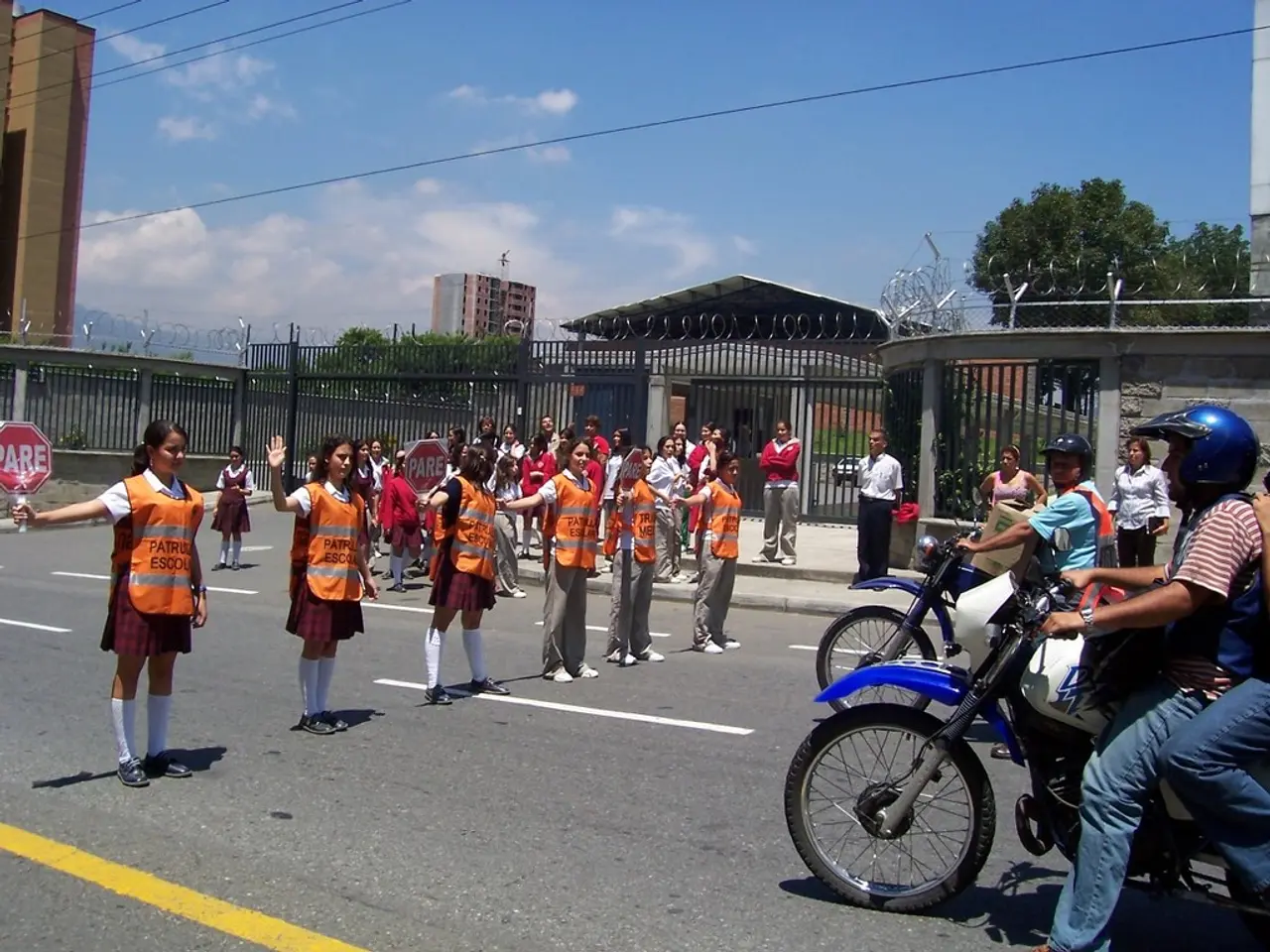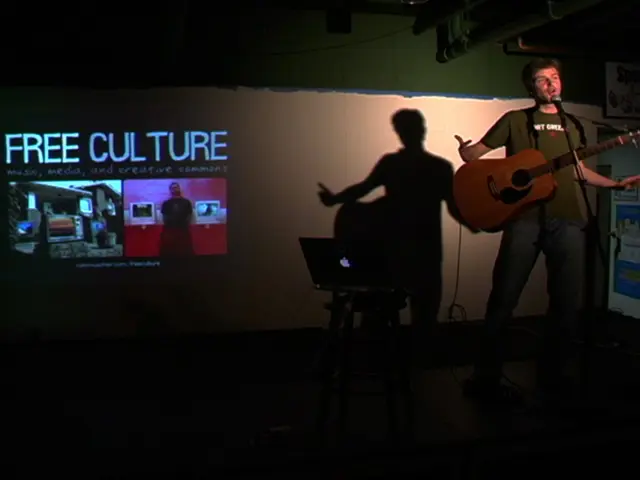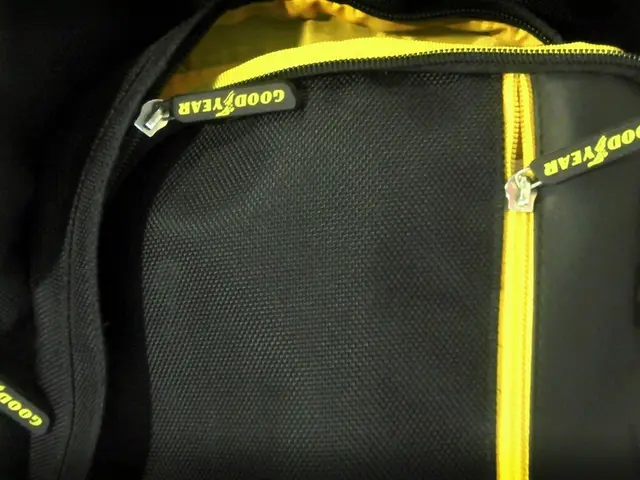Germania's Baden-Württemberg state proposes a ban on hazardous parents providing taxi services.
In Baden-Württemberg, a growing concern about the safety of children walking or cycling to school has led to the proposal of introducing school streets and school zones. The state government, recognising the need for action, aims to address the issue by implementing these measures.
Currently, there is a regulatory gap that makes the implementation of school streets and school zones more challenging, as there is no official traffic sign for these designated areas. Despite this, Baden-Württemberg is part of a broader trend in Germany adopting such measures to curb morning traffic chaos and improve safety for children commuting to school.
School streets involve temporarily closing streets around schools during morning drop-off times to motorised traffic, allowing children to walk or cycle safely and reducing car congestion and pollution near school entrances. School zones, on the other hand, are designated areas near schools with lower speed limits, enhanced signage, and traffic calming infrastructure to improve safety for children commuting on foot or by bike.
Local municipalities in Baden-Württemberg have been gradually implementing such initiatives as part of wider efforts to promote sustainable mobility and safer school environments. These include temporarily restricting traffic in key streets near schools at peak times, expanding cycling infrastructure and safe crossings, promoting "walking buses" and bike trains supervised by parents or teachers, and improving urban planning to reduce the need for car trips.
Transport Minister Winfried Hermann (Greens) plans to present a decree for action regarding school streets soon, emphasising that authorities already have the power to establish school streets to "ward off dangers to traffic safety". Minister Hermann also wants to push for changes in traffic law at the federal level.
The Green faction has expressed concern about the increasing trend of "drive-in schools" in Baden-Württemberg, where parents often drive their children to school and park near the entrance, leading to confusing and dangerous situations for children who walk or cycle to school. The state parliament is addressing this issue at the request of the Greens.
The state parliament's statement did not provide details on the timeline for implementing the school streets and school zones plan. However, it is likely that these approaches are part of current or planned local policies in Baden-Württemberg, given the state's focus on innovation and investments in infrastructure.
According to the AfD, at least 83% of children and young people in Baden-Württemberg reach school without a parent taxi. Despite some restrictions, the number of traffic accidents on the way to school has increased from 378 in 2022 to 423 in 2023. Such models, as seen in Paris where around 200 streets near schools have been closed to traffic, could help improve safety around schools in Baden-Württemberg.
While the exact state-wide framework or evaluation results are not detailed in the available documents, for the most up-to-date and detailed descriptions of school street and school zone policies in Baden-Württemberg, it is recommended to consult the state's Ministry of Transport or Education websites or local municipalities' traffic and mobility plans.
- To enhance safety and promote sustainable mobility in education-and-self-development, schools in Baden-Württemberg are considering adopting school streets and school zones, collaborating with the finance industry for potential funding.
- In light of the growing concern about personal-growth and learning opportunities for children, recent proposals for school streets and school zones in Baden-Württemberg also include expanding cycling infrastructure and implementing walking buses and bike trains.
- Pursuing transportation innovation, the regional industry could also benefit from the implementation of school streets and school zones in Baden-Württemberg, as it may encourage the development of strategic infrastructure catering to education-and-self-development and sustainability.




